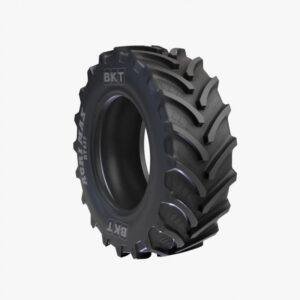The Ultimate Guide to Agricultural Tires: Types, Benefits & Buying Tips
Introduction
Agricultural tires are the backbone of farming machinery, ensuring optimal performance, safety, and efficiency in the field. Whether you’re a small-scale farmer or manage large agricultural operations, choosing the right tires can significantly impact productivity and cost-effectiveness.
In this comprehensive guide, we’ll explore:
-
Different types of agricultural tires
-
Key benefits of high-quality farm tires
-
How to choose the best tires for your machinery
-
Maintenance tips to extend tire lifespan
-
FAQs and expert recommendations
By the end, you’ll have all the knowledge needed to make an informed decision. Let’s dive in!
Why Agricultural Tires Matter
Farm tires are specially designed to handle rugged terrains, heavy loads, and varying weather conditions. Unlike standard tires, they offer:
✔ Enhanced traction for muddy or uneven fields
✔ Reduced soil compaction to protect crops
✔ Durability to withstand harsh farming conditions
✔ Fuel efficiency by minimizing slippage
Choosing the wrong tires can lead to increased downtime, higher fuel costs, and even crop damage.
Types of Agricultural Tires
1. Radial Tires
-
Provide better fuel efficiency
-
Offer a larger contact patch for improved traction
-
Reduce soil compaction due to flexible sidewalls
2. Bias-Ply Tires
-
More affordable than radial tires
-
Sturdy construction for heavy loads
-
Best for slow-speed applications
3. Flotation Tires
-
Wider design to distribute weight evenly
-
Ideal for soft or wet soil conditions
-
Minimize soil disruption
4. Forestry Tires
-
Reinforced for rugged terrains
-
Extra protection against punctures
-
Used in logging and heavy-duty farming
5. Implement Tires
-
Designed for towed equipment (e.g., trailers, plows)
-
Lightweight yet durable
How to Choose the Best Agricultural Tires
1. Consider Your Terrain
-
Soft soil? Flotation tires reduce compaction.
-
Rocky fields? Reinforced forestry tires prevent damage.
2. Match Load Capacity
-
Check your tractor’s weight and load requirements.
-
Overloading tires leads to premature wear.
3. Tread Pattern Matters
-
R1 (Standard Tread): Best for general farming.
-
R2 (Deep Tread): Ideal for muddy conditions.
-
R3 (Turf Tread): Minimizes lawn damage.
4. Radial vs. Bias Ply
-
Radial: Better for fuel efficiency and comfort.
-
Bias Ply: More affordable and durable for heavy loads.
5. Check Tire Size & Pressure
-
Incorrect sizing affects performance.
-
Proper inflation prevents blowouts.
Maintenance Tips for Long-Lasting Agricultural Tires
✅ Regular Inspections – Check for cuts, cracks, or uneven wear.
✅ Proper Inflation – Underinflation increases fuel consumption.
✅ Clean After Use – Remove mud and debris to prevent corrosion.
✅ Rotate Tires – Ensures even wear and extends lifespan.
✅ Store Properly – Keep tires away from sunlight and chemicals.
Top Brands for Agricultural Tires
-
Michelin – Premium radial tires for high efficiency.
-
BKT – Affordable yet durable options.
-
Firestone – Reliable bias-ply and radial tires.
-
Titan – Great for flotation and specialty farming needs.
For the best deals, check out TireDealsNow’s Agricultural Tires Collection.
FAQs About Agricultural Tires
Q1. How often should I replace my farm tires?
A: Typically every 5-7 years, but inspect regularly for wear.
Q2. Can I use regular tires on my tractor?
A: No, agricultural tires are designed for heavy loads and rough terrain.
Q3. What’s the best tire for wet fields?
A: Flotation or R2 deep-tread tires provide the best grip.
Q4. How does tire pressure affect performance?
A: Low pressure increases slippage, while overinflation reduces traction.
Conclusion
Choosing the right agricultural tires is crucial for maximizing efficiency, reducing costs, and protecting your fields. By understanding the different types, maintenance needs, and selection criteria, you can make the best choice for your farming operations.
For high-quality farm tires at competitive prices, visit TireDealsNow today!

